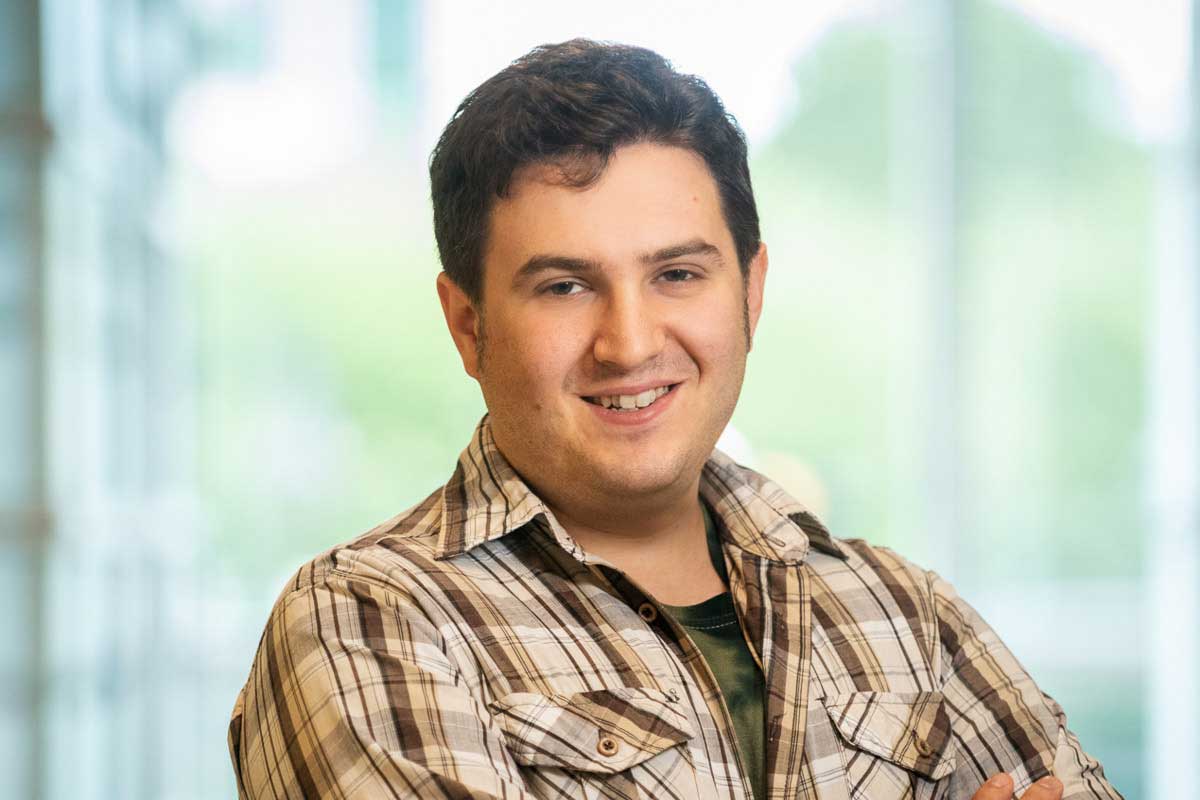Eli Sennesh
PhD Student

Education
- MS, Technion Israel Institute of Technology - Israel
- BS, University of Massachusetts Amherst
Biography
About Me:
- Hometown: Delmar, NY
- Field of Study: Cognitive Science
- PhD Advisor: Jan-Willem van de Meent
What are the specifics of your graduate education (thus far)?
I took a previous Master's degree at the Technion, specializing in software engineering and programming languages. Upon coming across the fields of computational cognitive science and theoretical neuroscience, I was inspired to switch.
What are your research interests?
I work in the Probabilistic Modeling Lab in Khoury College, as well as the Interdisciplinary Affective Science Laboratory in the Department of Psychology. The collaboration goes both ways: I do work in which neuroscience informs probabilistic machine learning, and in which machine learning informs neuroscience. At the moment I am trying to develop a structure for probabilistic programs that can provide the efficiency of inference we hypothesize neural circuits provide to the brain, as well as applying ideas from reinforcement learning and stochastic optimal control theory to how the brain controls the body.
What’s one problem you’d like to solve with your research/work?
How does the brain infer and quantify which sensory signals need to be controlled, and which should simply be modeled? Colloquially, how does it learn what matters, and what's just happening?
What aspect of what you do is most interesting?
I find most interesting the way that seemingly commonsense ideas in one field can inform novel developments in another. For instance, large parts of the brain appear to have a relatively uniform cytoarchitecture, being built out of many basically similar microcircuits wired together. Trying to write probabilistic programs this way turns out to require deep investigation of their semantics, building in compositionality of inference from the ground up. Just bringing in ideas from neuroscience and programming languages already provides an interesting alternative to the usual "end-to-end" philosophy of machine learning.
What are your research or career goals, going forward?
I aim to develop a computational understanding of how we feel and move. I highlight these two aspects of the human experience because neuroscience tells us that "feeling" is ongoing feedback for the motor processes going on in our body, and that ordinary motor movements proceed in a way vastly more efficient than existing formalisms in machine learning can account for. I expect this will likely lead to a career path aligned with cognitive science and neuroscience.
Where did you grow up or spend your most defining years?
My family moved from Brooklyn to New Jersey to upstate New York. As a result, if you ask me where I come from, I find it hard to give a definitive answer.
Where did you study for your undergraduate degree?
UMass Amherst seemed like more fun than RPI when I was visiting, so I chose there.
Recent Publications
-
Learning Proposals for Probabilistic Programs with Inference Combinators
Citation: Stites, S., Zimmermann, H., Wu, H., Sennesh, E., & van de Meent, J.-W. (2021). Learning Proposals for Probabilistic Programs with Inference Combinators. In 37th Conference on Uncertainty in Artificial Intelligence. Retrieved from http://arxiv.org/abs/2103.00668 -
Amortized Population Gibbs Samplers with Neural Sufficient Statistics
Citation: Wu, H., Zimmermann, H., Sennesh, E., Le, T. A., & van de Meent, J. W. (2020). Amortized population Gibbs samplers with neural sufficient statistics. In Proceedings of the 37th International Conference on Machine Learning. -
Beginning with biology: “Aspects of cognition” exist in the service of the brain’s overall function as a resource-regulator
Citation: Theriault, J., Coleman, M., Feldman, M., Fridman, J., Sennesh, E., Barrett, L., & Quigley, K. (2020). Beginning with biology: “Aspects of cognition” exist in the service of the brain's overall function as a resource-regulator. Behavioral and Brain Sciences, 43, E26. doi:10.1017/S0140525X19001705